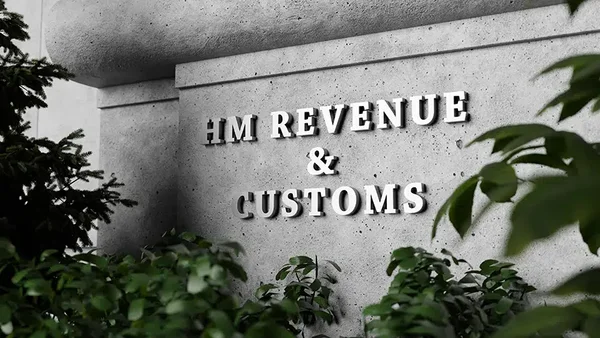
The winds of change are blowing through the UK's tax landscape, and if you’re a freelancer, it’s time to take note. As Labour sets out its ambitious tax reform agenda ahead of the next general election, significant changes could be on the horizon, especially for the self-employed. Key proposals include adjustments to tax thresholds, revamped reliefs, and a renewed focus on compliance.
This article explores exactly what Labour’s tax vision means for freelancers, whether you’re a sole trader, contractor, or creative professional juggling multiple gigs. We’ll break down the key facts, financial figures, and broader implications, all in the trademark Pie way, clear, friendly, and practical.
New Income Tax Thresholds on the Table
Labour is expected to review current income tax bands, with a particular focus on high earners. Although precise figures are yet to be locked down, it’s speculated that thresholds could shift to ensure "those with broader shoulders pay a fairer share." This means freelancers earning above £100,000 annually might see incremental rises in marginal tax rates.
In Numbers: Under proposals floated, the 45% additional rate could apply from a lower threshold, possibly starting at £125,140 rather than the current £150,000.
National Insurance Contributions Reforms
Labour has hinted at possible reforms to National Insurance (NI) for freelancers. Today, many self-employed workers benefit from lower Class 4 NI rates. The new proposals could either narrow the gap between employee and self-employed NI rates or introduce a streamlined flat-rate model.
Key Quote: Rachel Reeves, Shadow Chancellor, stated, "Fairness must underpin our tax system, ensuring no one unfairly gains or loses based on employment status."
Simplification of Business Expenses and Reliefs
Goodbye confusion, or so Labour hopes. Their reforms promise to streamline which business expenses freelancers can claim. A single “Freelancer Deduction” could replace multiple allowances, reducing paperwork but potentially capping claims for those with complex expenses.
Potential Impact: Freelancers who heavily invest in equipment, travel, or software may need to reassess their financial planning under this model.

Stricter Compliance and Anti-Avoidance Measures
HMRC's compliance net is set to tighten, with Labour pledging to invest heavily in tackling tax avoidance. This could mean more scrutiny for freelancers regarding allowable deductions, IR35 status checks, and late filings.
Fun Fact: Labour plans to bolster HMRC’s enforcement budget by £555 million, aiming to recover an estimated £5 billion annually in lost revenue.
Making Tax Digital: Full Steam Ahead
Labour is fully backing the Making Tax Digital (MTD) initiative. From 2026, freelancers earning over £30,000 could be mandated to keep digital records and submit quarterly updates. It’s a move designed to reduce errors but adds another layer of administration for small businesses.
Important Note: Currently, only businesses above £50,000 are included in MTD for Income Tax Self Assessment (ITSA). This threshold is set to lower, pulling in more freelancers.
Wider Economic Implications for Freelancers
Beyond personal tax bills, freelancers may feel the ripple effects of broader economic policy shifts. With Labour keen to invest in green infrastructure, health, and education, freelancers in related sectors could benefit from new project opportunities, assuming they can navigate the new tax regime successfully.


Fun Facts
Did you know that freelancers contribute a massive £316 billion to the UK economy annually? Despite their vital role, many freelancers find themselves navigating outdated tax systems built for traditional employees.
Labour’s reforms aim to modernise tax practices, but freelancers will need to stay agile to adapt to the evolving landscape.
Conclusion
Labour’s proposed tax reforms present a double-edged sword for freelancers: on the one hand, a potentially fairer and more transparent system; on the other, tighter scrutiny and possible increases in tax liability for higher earners. As always, being proactive is key.
Freelancers should review their business models, seek professional advice where needed, and prepare early for the coming changes. After all, in a shifting economy, knowledge, and preparation, are the best shields against uncertainty.
Frequently Asked Questions
How will Labour’s tax plans affect freelancers' take-home income?
Freelancers earning over £100,000 annually could see higher effective tax rates, with potential reductions in available deductions and reliefs.
What is the proposed "Freelancer Deduction"?
Labour may consolidate multiple business expense categories into a single, standardised allowance, simplifying claims but possibly capping them.
Will I need to adopt Making Tax Digital if Labour wins?
Yes. If your turnover exceeds £30,000, you’ll likely need to keep digital records and submit quarterly updates from 2026 onwards.
Is National Insurance for freelancers changing under Labour?
Potentially. Labour may seek to equalise NI rates between the employed and self-employed, impacting freelancers’ bottom line.
What should freelancers do now to prepare?
Start reviewing your income, expenses, and tax records. Consider speaking with an accountant about proactive steps to stay compliant and optimise your position under any new rules.











